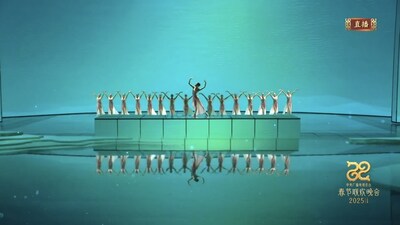The Islamic Republic of Iran, long reliant on a network of proxy groups to exert influence across the Middle East, faces significant challenges as its strategy falters. Years of investment in allies such as Hezbollah, Hamas, and other factions in Yemen, Iraq, and Syria are unraveling, leaving Tehran grappling with diminishing regional authority and rising domestic discontent.
“The Islamic Republic of Iran today is very different from what we knew six or seven months ago,” said David Menashri, a professor at the Alliance Center for Iranian Studies, speaking to The Media Line. “It has lost its proxies. All these years of investment in groups like Hezbollah and Hamas have nearly collapsed. Iran’s regional prestige and power are diminished.” Tehran has responded by intensifying its propaganda, including publishing a video of a naval underground arsenal just days before Donald Trump’s return to the White House.
Propaganda as a tool of survival
Iran’s propaganda machine, though longstanding, now reflects the severity of its crisis. The video, showcasing advanced missile systems purportedly capable of targeting US aircraft carriers, is part of Tehran’s efforts to project defiance.
“The regime is trying to compensate for its weaknesses by using extensive propaganda to suggest that everything is normal. It’s not,” Menashri observed. “This messaging aims to reassure the Iranian people and signal to the world that Iran remains a formidable power.”
But these efforts fail to obscure the regime’s struggles. Nima Baheli, an Iranian political analyst, told The Media Line, “These maneuvers are more about external messaging to opponents like the US and Israel, showing that Iran is not an easy target.”
Economic struggles and the search for alliances
Iran’s economy, battered by years of sanctions and mismanagement, is nearing collapse. The regime’s allocation of billions to support its proxies has fueled public anger at home. “The Iranian people see a government that cannot prioritize its economy,” Menashri noted.
Seeking relief, Tehran is attempting to rebuild international ties. “Iran needs agreements with the United States to alleviate sanctions and stabilize its domestic situation,” Baheli explained. He added that Elon Musk’s involvement in Trump’s administration could open new channels for dialogue. “It’s unclear whether Musk’s actions reflect personal initiatives or coordinated policies, but his business-oriented mindset could facilitate negotiations.”
Menashri recalled past diplomatic efforts: “For four years, Joe Biden’s administration negotiated with Tehran. They even scheduled a meeting for October 9, 2023, which was postponed due to the ongoing war. Both sides have shown interest in dialogue.”
Nuclear ambitions and strategic calculations
As its proxy strategy falters, Iran’s nuclear program has taken center stage, raising concerns in Washington and Jerusalem. “Israel cannot act alone against Iranian nuclear sites; it needs US support,” Baheli said. “Trump appears to favor diplomacy over military action, but Israel’s moves are closely tied to US policy.”
“Israel will follow Trump’s lead on this. Neither the States or Israel want a nuclear Iran, but each is hoping that the other would eventually do this dirty work,” Menashri added.
Shifting alliances and the ‘Cotton Road’
Amid Tehran’s challenges, Trump’s “Cotton Road” initiative seeks to isolate Iran further. The project envisions stronger economic ties among Saudi Arabia, India, and other key players, sidelining adversaries like Iran and potentially Turkey.
“The Cotton Road aims to create an alliance that excludes Iran,” Baheli explained. However, Saudi Arabia’s participation hinges on progress toward resolving the Palestinian issue. “The Saudis need at least a symbolic gesture toward a solution for the Palestinian cause,” Menashri said.
This complex web of alliances illustrates how the Palestinian issue remains a linchpin in regional diplomacy.
This underscores how the Israeli-Palestinian conflict remains pivotal in regional diplomacy. Baheli remarked, “The recent Gaza truce was strategically timed to affect Biden’s position and freeze the issue before Trump’s formal takeover.”
Menashri noted Trump’s complex approach: “He pushes for Saudi-Israeli normalization while permitting settlement expansions. He wants to detach militarily from the region but has been more involved than before. We’ll have to wait to see his true intentions.”
A regime under pressure
Iran’s trajectory reflects a mix of military setbacks, economic hardships, and waning influence. While its propaganda portrays resilience, the reality is of a regime struggling to adapt to evolving geopolitical dynamics.
“The region is in flux, with key developments hinging on new US policies, Iranian actions, and shifting alliances,” Baheli concluded.
Menashri added, “Iran’s internal and external challenges are interconnected. Resolving them will require a strategic shift—one the regime seems unprepared to make.”






